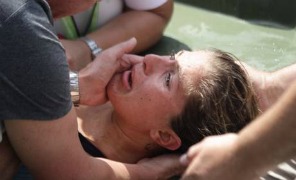The coach of the cyclist Italian national team Paolo Bettini said in an interview at Eugenio Capodacqua (La Repubblica) that he would leave this for another role to work with young people. Hays that young people are nauseated by inadequate training to them, from parents obsessed with money and sporting organizations seeking to achieve results at all costs. It seems clear that this approach is no more than the prelude to doping and it is the reason for the drop out of those young people who do not accept this kind of sport culture. Bettini expresses his thoughts very clearly: “You cannot force a kid to do training sessions of 4 hours and a half and then gym, sacrifices, hardships. Junior tables I’ve seen are the same of the seniors. The result is the nausea.”
He is also very clear on the proposals to be made: “The things to do are known: the school, the recruitment, the slow start, the rejection of the result at any cost. But when you put them into practice there is always someone who opposes and says – why change if we have always done so? – “. Too easy to respond to these people that it is because it is always done in this way that cycling has become one of the sport less clean.
Congratulations to Bettini for saying that young people need other things and that the Italian cycling needs to change. The sportpsychologists will certainly be at his side to support this battle of sport culture.
(







